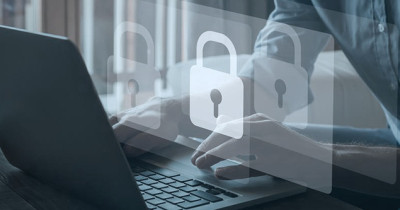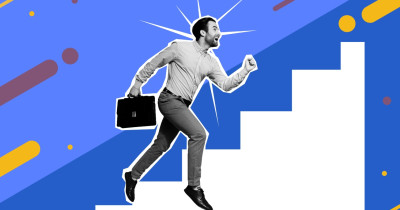Smart digital habits of productive people

Last updated on 14th March, 2024 at 07:53 am
We’re all juggling multiple digital media platforms these days. Between personal emails, business emails, Teams, WhatsApp, LinkedIn, and social media, it can be easy to lose focus.
Reading time: 5 minutes
In this article you’ll learn:
- Why multiple digital platforms often overwhelm us
- Stats on digital fatigue in the workforce
- Expert tips on managing your digital platforms efficiently
Have you ever felt overwhelmed by all your digital media platforms? If you have, you’re certainly not alone. Recent studies reveal a few surprising facts.
- Forbes found that 60% of people feel increased burnout because of communicating digitally.
- Forbes also found that around 50% of people feel that ineffective digital communication negatively impacts their productivity.
- Bright Futures found that 45% of people feel overwhelmed by the amount of information shared through digital media platforms.
- Indeed found that 53% of people find it difficult to unplug after working hours have ended.
So, what is the solution?
We called on Nozizwe Vundla, Head of Sanlam Foundation, to help shed some light on the matter. Having recently driven a digital transformation strategy at Sanlam Foundation, she knows just how useful – and indeed, precarious – digital platforms can be. She shares insights and tips to help streamline your digital platforms and experience to optimise communication, productivity, and most importantly, a sense of wellness and positivity.
“One of the primary functions of Sanlam Foundation is to give grants to deserving communities and organisations,” says Vundla, “so we get hundreds, sometimes thousands of applications. Previously, these communications would come through multiple platforms. We found that it was neither efficient nor fair, as things would inevitably get lost in the mix. So, we set out to streamline our digital experience, which has allowed us to be efficient, transparent, and focused.”
Nozizwe’s 4 tips for smarter digital habits
1. Use platforms for their intended purpose
“Crossing over between different platforms has never been easier, but juggling work between emails, Teams, WhatsApp, and phone can lead to you feeling disorganised and overwhelmed,” says Vundla. “Identify the platforms meant for work, and those meant for leisure and use them for their intended purpose. At Sanlam Foundation we found that when we were receiving applications via email, LinkedIn, and DMs, it became chaotic. We identified our primary channel for applications, so everyone can be seen, heard, and considered.” Vundla says that streamlining in this way has taken away a tremendous amount of stress for both applicants and the Sanlam Foundation team.
2. Be intentional about your screen time
“Depending on whether you’re at work or home, be intentional about the platforms you’re using, and very importantly, for how long,” says Vundla. “Switching between traumatic news stories on the web, funny memes on social media, and then important work emails in the matter of a few minutes can take an emotional toll on you.” Vundla adds that you can also opt for settings like muting DMs or notifications on certain platforms to help stop unnecessary distractions or interactions.
3. Learn to switch off properly
“In this digital age, it’s so easy to be bombarded with information and communications, even when you’re at home,” says Vundla. “For that reason, it’s important to set boundaries for yourself and limit how much time you’re spending on your devices. Learn to switch off properly, learn to let go of things outside of your control, and you won’t feel overstimulated and oversaturated when you’re back at work.”
4. Consider what the content you consume
“Put your mental health first at all times,” says Vundla. “There’s so much going on in the world right now, and so much pressure to fit in, so it’s easy to feel broken-hearted or depressed. Consume content that aligns with your values and goals, and that stimulates you in the right ways. For instance, I love listening to podcasts. They’re a one-way form of communication that doesn’t require responding, and I can explore topics that matter to me, like mental health and meditation.”
Did you know?
Since 2011, the Sanlam Foundation has invested more than R652 million in education, financial literacy, health, water security, enterprise and supplier development initiatives and employee volunteerism.
Want to learn more?
We send out regular emails packed with useful advice, ideas and tips on everything from saving and investing to budgeting and tax. If you're a Sanlam Reality member and not receiving these emails, update your contact details now.
Update Now







